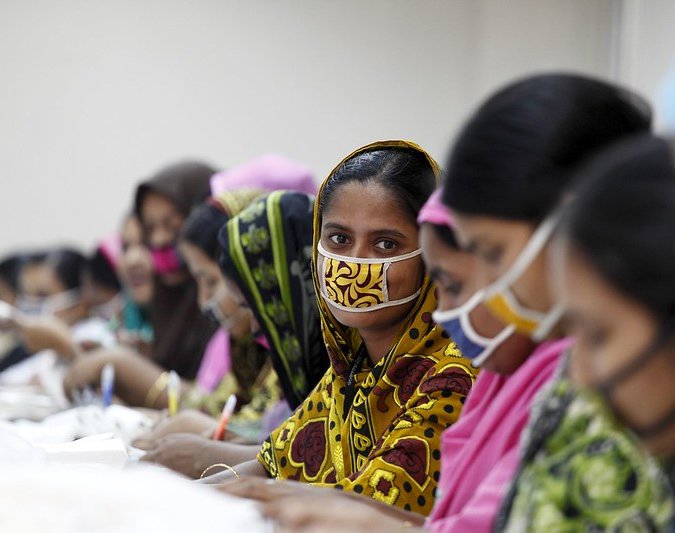IndustriALL Union is launching a new chapter of the research on gender-based violence and harassment with a summary of the results from the garment sector, where women report that trade union presence in the workplace makes a difference in fighting gender-based violence. From Europe a positive example, where the social partners of the leather industry (IndustriALL and COTANCE) engage in a project on collective agreements
Many of the women interviewed spoke about the positive impact of a union; some women saw significant changes after the union was formed in the factory. Many unions have made training and awareness raising on GBVH a priority, along with workplace negotiations and agreements on the issue. The presence of women in trade union leadership positions has a defining impact.
Living wages, decent work and ending precarious work are of critical importance in to ending GBVH in the garment and textile sector. In addition, strategies to relieve production pressures and ensure women are not forced to work overtime, are essential in ending GBVH.
A lack of effective systems for reporting violence and harassment, along with a culture of silence, impunity and victim-blaming, contribute to low levels of complaints.
European Social Partners of the Leather Industry engage in project on Collective Agreements
IndustriALL Global Union is a global union federation, founded in Copenhagen on 19 June 2012. IndustriALL Global Union represents more than 50 million working people in more than 140 countries, working across the supply chains in mining, energy and manufacturing sectors at the global level.
IndustriAll European Trade Union and COTANCE, the association representing the European leather industry, since 2021 have embarked on an EU-sponsored project that will allow them to examine and compare collective agreements concluded at national level in the leather sector.
With their new project, ERICA (European Repository of the Industry’s Collective Agreements), the social partners will create an online database to gather the national collective agreements of the European leather sector. The database will be open to the project partners and will facilitate a comparative analysis of key elements that are agreed on by the social partners.
In addition to the repository of collective agreements, the social partners are planning to organise national social dialogue workshops. These workshops will give both sides of industry the opportunity to discuss pivotal topics concerning national collective bargaining at European level, thereby providing an opportunity for learning and spreading best practice.
The project has been developed by national affiliates from 7 Member States: ACEXPIEL (Spain), AHLI (Hungary), APIC (Portugal), FFTM (France), SG (Sweden), UNIC- Concerie Italiane (Italy), VDL (Germany) and with Leather UK (UK) as an observer.
A Gender Equality/No Discrimination scheme exists in all countries included in the ERICA database. While traditionally, the workforce in tanneries was predominantly male, the modernisation and diversification of the industry has given rise to welcome increase in opportunities for women.
Organisations linked by an industry agreement or, failing that, by professional agreements, meet at least once a year to negotiate salaries. These negotiations take into account the goal of professional equality between men and women and the measures that seek to achieve this.


